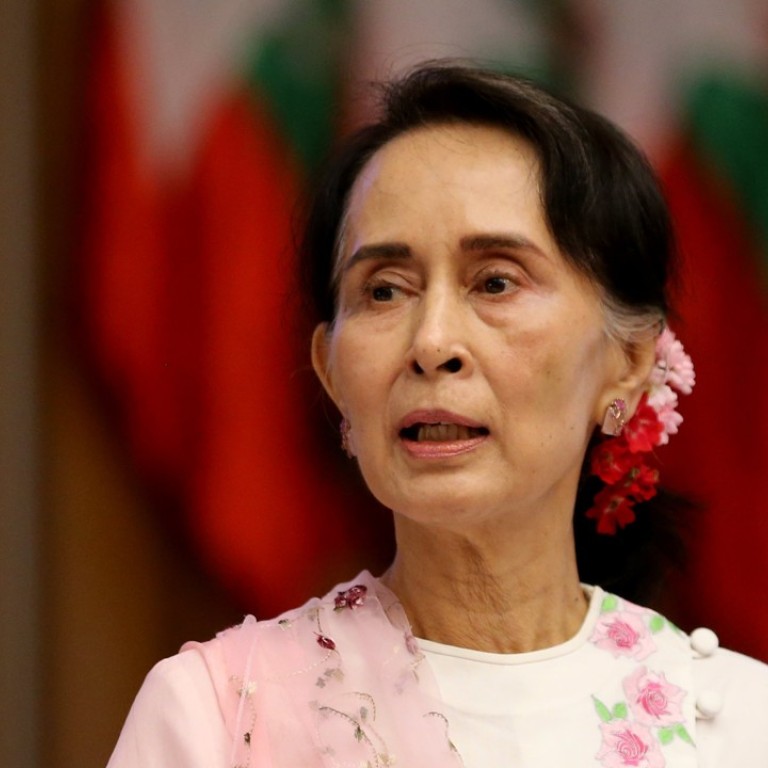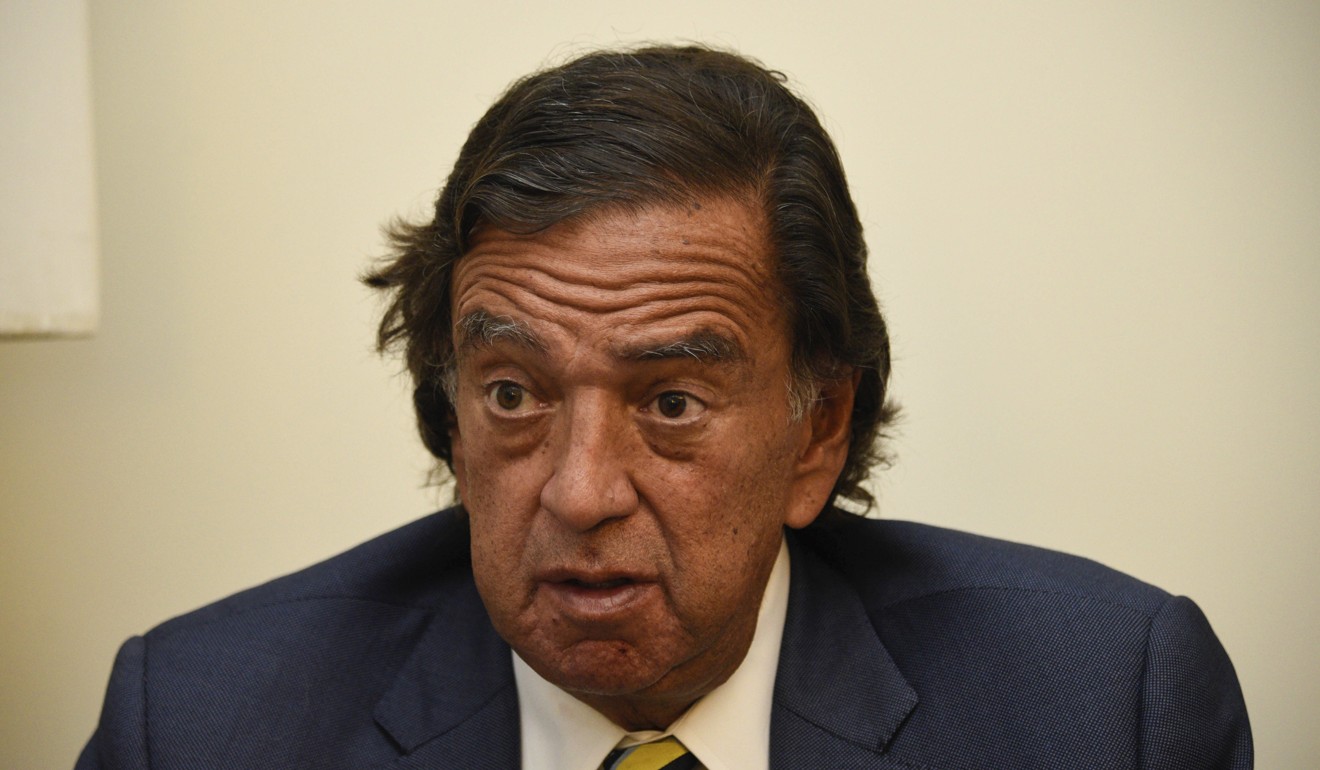
‘She seems isolated’: Suu Kyi is in a ‘bubble’ when it comes to crackdown on Rohingya, US diplomat says
Bill Richardson resigned from the Myanmar government’s advisory board after visting the troubled Rakhine State, and concluding the board was conducting a ‘whitewash’
Myanmar’s leader Aung San Suu Kyi is “isolated” and living in a “bubble”, according to veteran US politician Bill Richardson, who quit an international panel advising her government on the Rohingya crisis after clashing with the Nobel laureate.
Richardson said Suu Kyi – whom he described as a long-time friend – had developed a “siege mentality” in office, but added that Western governments should continue to engage with Myanmar and that Suu Kyi remained the country’s best hope for change.
“The relationship with the West, with human rights groups, with the United Nations, with the international media is terrible,” he said by phone from New Mexico on Friday.
Watch: what’s driving Myanmar’s Rohingya crisis?
“And I think Aung San Suu Kyi has brought this upon herself, the constant disparagement of the international community, which I think can be helpful to her … She seems isolated. She doesn’t travel much into the country. I think she’s developed a classic bubble.”
Richardson resigned from the Myanmar government’s advisory board on Wednesday, during the panel’s first visit to troubled Rakhine State, saying it was conducting a “whitewash”.
The Myanmar military is to blame a lot and the only person that can turn them around, I believe, is Aung San Suu Kyi
Around 688,000 Rohingya Muslims have fled from Rakhine to Bangladesh in recent months to escape an army crackdown following insurgent attacks on security forces.
“I think the Myanmar military is to blame a lot and the only person that can turn them around, I believe, is Aung San Suu Kyi, and she should start doing that,” Richardson said.
Suu Kyi’s office said in a statement late on Thursday that her government had asked Richardson to step down and accused him of pursuing “his own agenda”.
The former New Mexico governor rejected that version of events. He said he had informed the US Ambassador in Yangon and the State Department of his intention to resign but did not seek their guidance or permission to do so.
Richardson said that before his trip to Myanmar, he was phoned by US Secretary of State Rex Tillerson. But he declined to disclose details of his conversation with the chief diplomat in Donald Trump’s administration.
A separate statement from the nine remaining members of the advisory board on Thursday said they met this week “with open minds” and rejected Richardson’s criticism that he feared the panel would be used as “a cheerleading squad”.
Richardson had previously said he got into a furious argument with Suu Kyi at a Monday night dinner when he brought up the case of two Reuters reporters, who were arrested on December 12 on suspicion of violating Myanmar’s Official Secrets Act.
Watch: Rohingya rape survivors share harrowing stories
“When I opened my dialogue with her, that was my number one issue, release the journalists. And she exploded,” he said on Friday.
Reporters Wa Lone, 31, and Kyaw Soe Oo, 27, had worked on Reuters coverage of the crisis in Rakhine.
Myanmar’s armed forces have been accused by Rohingya witnesses and human rights activists of carrying out killings, rapes and arson in Rakhine in a campaign senior officials in the United Nations and United States have described as ethnic cleansing. Myanmar rejects that label and has denied nearly all the allegations.

Bangladesh and Myanmar agreed earlier this month to complete the voluntary repatriation of all the refugees. The remaining members of the advisory board on Wednesday toured temporary camps the government has set up for returnees.
Richardson said he did not believe conditions were yet right for the repatriation process to begin.
“I believe that the Myanmar government has emphasised speed instead of systems,” he said. “There’s been too much emphasis on quick results rather than assuring that safety is guaranteed.”

